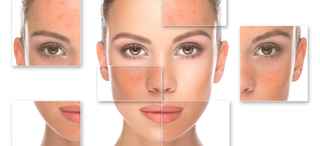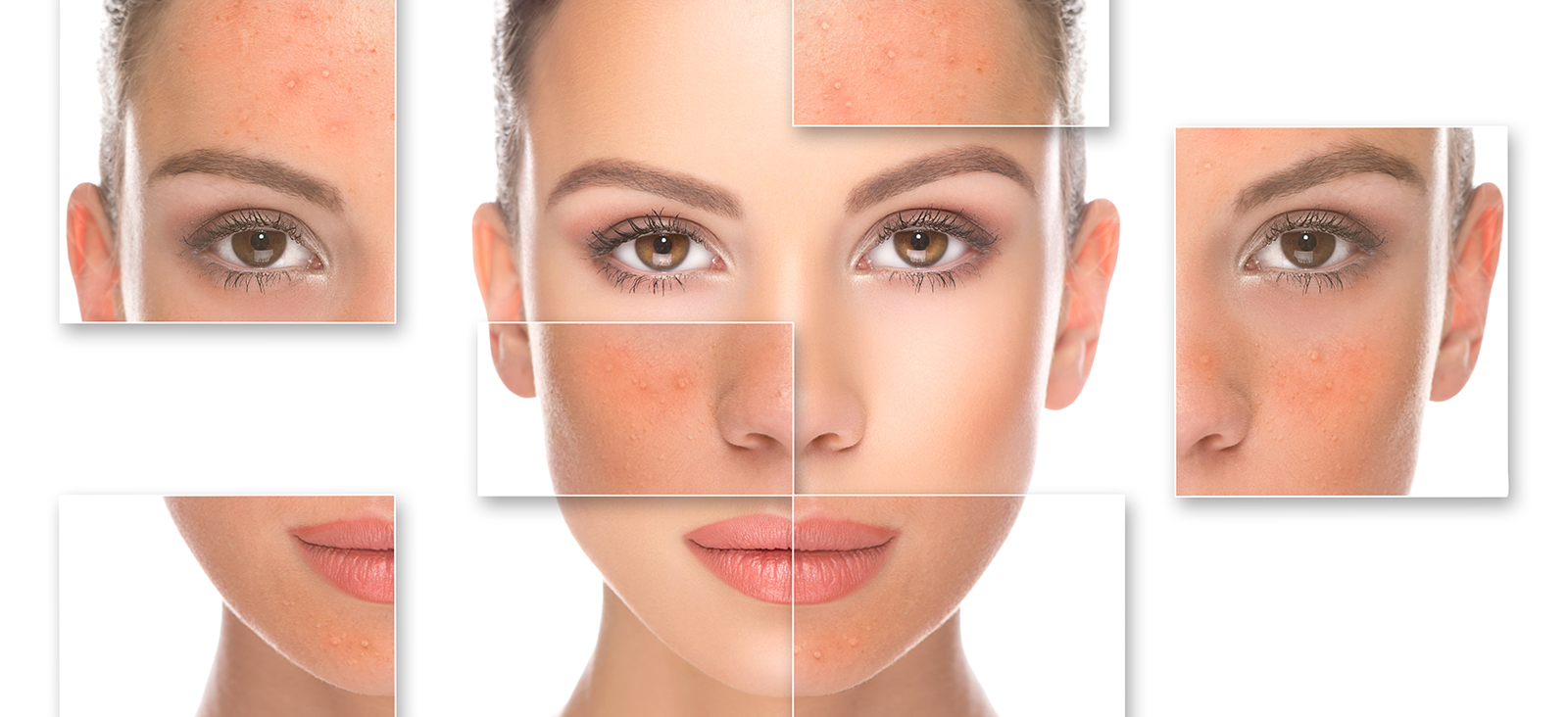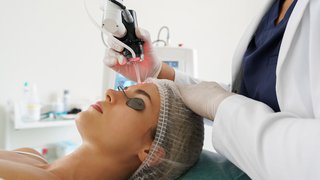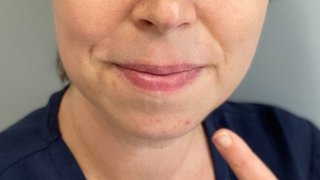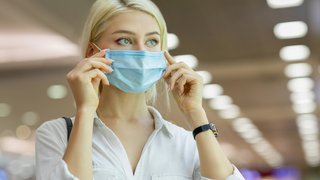Symptoms of Acne
Depending on the severity of acne, its signs and symptoms vary from mild to severe. Skin changes include:
- Comedone or plug: Skin bumps caused by pores blocked by oil and skin cells
- Crusting of skin bumps
- Redness around skin eruptions
- Whiteheads: Closed pores with comedones that are white
- Blackheads: Open pores with comedones that darken as bacteria is exposed to air
- Papules: Small, red bumps
- Pustules (pimples): Papules containing white or yellow pus, caused by bacteria and inflammation
- Nodules: Large, solid, painful lumps beneath the skin’s surface caused by blockage and inflammation deep in follicles, also called nodulocystic acne
- Cysts: Large, painful, pus-filled lumps beneath the skin’s surface
- Scars: Darkened areas of skin that remain after acne eruptions heal, especially after cysts or nodules
Diagnosing Acne
Our experienced dermatologists can diagnose acne by examining the skin, so patients do not typically need further testing. We might perform a bacterial culture with certain patterns of acne or for large pus bumps that don’t clear up, to rule out infection.
We also determine the type and grade of acne, from grade 1 (mild) to grade 4 (severe). This assessment helps us decide on an effective treatment plan specific to each patient.
Treatment for Acne
At UT Southwestern, we can treat every case of acne using a variety of effective treatments. We begin acne treatment by discussing what types of over-the-counter treatments patients have already used and how long they have used them. This information helps us understand what has or has not worked to determine next steps.
If over-the-counter products have not helped after several weeks of use, our dermatologists prescribe stronger medicines and discuss other options with patients. Our goals are to help:
- Control acne
- Prevent scars or other skin damage
- Make scars less noticeable
Acne medications
Remedies for acne include oral (pills taken by mouth) and topical (applied to the skin) medications. Oral medications for acne include:
- Antibiotics, such as tetracycline, doxycycline, or minocycline, to reduce bacteria and redness
- Oral contraceptives that combine estrogen and progestin, for women who have acne and also wish to use contraception
- Anti-androgen drugs, such as spironolactone, which blocks the effect of androgens on oil glands in the skin
- Isotretinoin (Accutane) for people with severe acne that does not respond to other medications
Topical medications, such as creams or gels, include:
- Antibiotics such as clindamycin or erythromycin, to reduce bacteria and redness
- Retinoids (derivatives of vitamin A) such as tretinoin, adapalene, or tazarotene to prevent follicles from becoming clogged
- Prescription formulas of benzoyl peroxide or salicylic acid to prevent clogged follicles
- Azelaic acid to reduce bacteria
Procedures to treat acne and acne scars
For people with severe acne or scarring, our dermatologists work with our cosmetic and plastic surgeons who have specialized expertise in procedures to reduce scarring. Together, we provide comprehensive care to treat acne and help patients look their best.
Depending on each patient’s needs, we might use these procedures with or without medications:
- Chemical peels: Repeated applications of solutions using salicylic, glycolic, or retinoic acid to remove the top layer of skin
- Injections: Steroids to treat severe acne involving nodules or cysts, fillers such as collagen or fat to fill out indented acne scars, or Botox to relax skin around scars
- Light therapy: Treatment involving a chemical activated by a special blue light to fight skin bacteria
- Dermabrasion: Skin resurfacing using a small, rotating device to improve the appearance of scars by removing the top layer of skin
- Laser therapy: Skin resurfacing using erbium-YAG laser technology to rejuvenate the skin and improve the appearance of scars
- Surgery: Minor procedures to remove individual acne scars and repair with stitches or a skin graft
